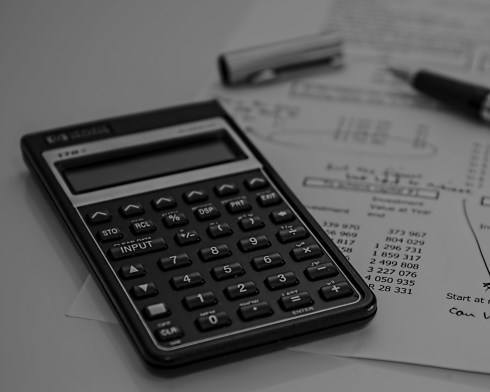The Turkish Code of Commerce (“TCC”) Art.509 on dividends provides that, while the dividends can be distributed from net period profits and free reserves, the distribution of “advance dividends” shall be regulated by a communiqué to be issued by the Ministry of Customs and Commerce. This communiqué shall apply to those joint stock companies not subject to the capital markets regulations, limited liability companies and limited partnerships divided into shares. The relevant Communiqué on Distribution of Advance Dividends (the “Communiqué”) was published in the Official Gazette on 09.08.2012 and provides the following:
The requirements for distribution of advance dividend: The company’s general assembly shall resolve on the advance dividend distribution, AND the company shall have achieved profits according to the accounts of the interim financial statements of 3, 6 or 9 months periods, regarding the fiscal period in which advance dividend will be distributed. There are also specific quorum requirements for this general assembly under the Communiqué, depending on the type of company in question.
Minutes of the General Assembly: According to Art.6.1, in case the company’s general assembly resolves in favour of distributing advance dividends, the resolution must also contain the following wording.
“a) If, at the end of the relevant fiscal period, the company cannot achieve total net annual profit sufficient to cover the advance dividend distributed within the year,
• the advance dividend amount exceeding the net profit shall be deducted from the free reserve funds stated in the previous year’s balance sheet,
• in case the amount of said free reserve funds is not sufficient to cover the advance dividend, the overpaid advance dividend shall be returned to the company by the shareholders upon notice of the managing body
b) If the company makes a loss at the end of the relevant fiscal period;
• General legal reserves and free reserve funds, if any, included in the previous year’s balance sheet shall be primarily used to off-set the loss. If these reserve funds are not sufficient to cover the loss, the full amount of the advance dividends distributed within the period shall be returned to the company by the shareholders upon notification by the managing body,
• After the offsetting of the general legal reserves and free reserve funds to the loss for the financial year, the remaining amount in the free reserve funds shall be deducted from the advance dividends. If as a result of this deduction, the amount of advance dividend distributed within the financial year exceeds remaining amount of free reserve funds, the exceeding part shall be returned to the company by the shareholders upon the notification by the managing body.”
The advance dividends which have been paid before the related fiscal period must be deducted from the net profit of the related year. The general assembly cannot resolve to distribute dividends or to pay dividends, without completing this transaction. When calculating the amount of the advance dividend to be distributed, the following are deducted from the interim profit of the relevant period in order to reach the “basis” for the distributable advance dividend:
• All of the past losses of the company (if any)
• Taxes, funds and financial reserves,
• Reserve funds that shall be allocated according to law and the articles of association,
• Amounts (if any) that shall be reserved for privileged shareholders, beneficial (dividend) shareholders and other persons who share in the profit, and
• Advance dividends which had been paid in the previous interim periods of the fiscal year (if any)
The advance dividend to be paid cannot exceed ½ of the “basis” amount determined based on the above calculation for distributable advance dividend.
The advance dividend is paid to the shareholders in proportion to their shares as of the distribution date. With respect to payments to be made to those shareholders with privilege, the privilege will not be taken into account in paying the advance dividend and shall be paid similar to the non-privileged shareholders. Furthermore, advance dividend cannot be paid to the beneficial (dividend) shareholders, the members of the board of directors who are not shareholders and those non-shareholders that only share in the profit.
If the shareholders are indebted to the company (other than their liabilities regarding the capital subscriptions), the aforesaid debt is deducted from the advance dividend paid to the shareholder. There are also specific provisions in case the company which has distributed an advance dividend, subsequently increases its capital in the relevant fiscal year, and then decides to distribute advance dividends for the second time.
There are also special duties for the managing bodies such as the Board of Directors regarding the advance dividend transactions. As a prerequisite, if the general assembly has resolved on distribution of advance dividend and the interim financial statements indicate that the company has achieved profit, then the managing body shall:
a) Prepare a report on the advance dividend distribution, stating that:
i) The interim period financial statements which constitute the basis of the advance dividend distribution are prepared in accordance with the principles of “true and fair view” as stated under Article 515 of the TCC,
ii) The amount of advance dividend to be distributed is calculated pursuant to Art.7 of the Communiqué. The documents which provide the basis for the said calculations and the other required conditions are to be attached to this report.
b) Pass a resolution on the payment of advance dividend amount as determined in the report to the shareholders and the procedures to be followed for the said payments.
c) The advance dividend shall be paid to the shareholders in accordance with Art.8 of the Communiqué, latest within 6 weeks following the resolution.
If there are bearer’s shares in the company, the managing body shall obtain the necessary security from those shareholders, with regard to the advance dividend to be paid. Furthermore, in case of circumstances indicated in Article 6.1 of the Communiqué (as in the company achieving lower than expected year-end profits or registering a loss, that cannot be met with reserve funds) the Board shall undertake the relevant transactions to recover the overpaid advance dividends from the shareholders and return them to the company.
The annex of the Communiqué provides the table and formulas regarding the calculation of the advance dividend. It is interesting to note that, there is no allocation of “first dividend” or “second dividend” when making the calculation or payment to the shareholders, as would be the case in the ordinary dividends following the end of the fiscal year. In addition to being limited to maximum half of the 3 calculated distributable basis, the company is also required to apply the relevant deductions solely to the interim period profit, without taking into account the free reserve funds cited under TCC Art.509 para.2. Looking at the reasoning of Art.509, we note that there are also other accounts of the company which are distributable as dividends, such as re-valuation funds or inflation corrections. However, since the Communiqué provides a specific calculation that is based solely on the net interim period profit, we believe that it would not be possible for the company to use these accounts when deciding on the advance dividend, especially in light of the fact that the general assembly is required to resolve that free reserves shall be used to offset any difference if the year-end profit is less than what was distributed to the shareholders as advance dividend. Considering the practical problems of recovering any advance dividend already paid from the shareholders should the free reserves be insufficient to offset the difference, the general assembly and the managing bodies are advised to carefully consider the distributable advance dividend as well as forecast year-end profits of the company.





